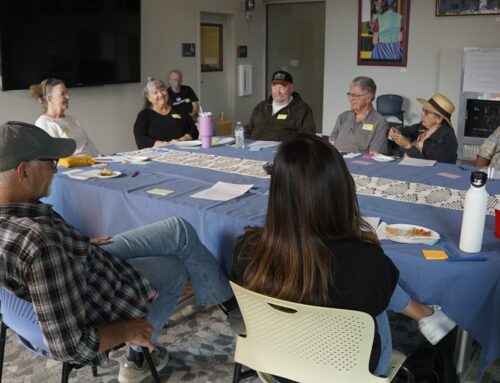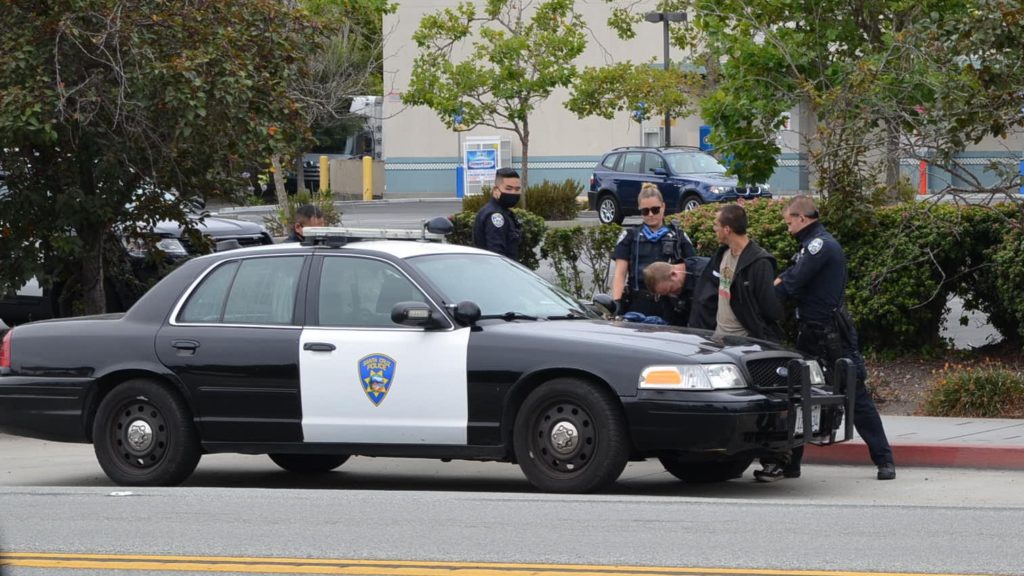
Santa Cruz police handcuff a man on Mission Street in Santa Cruz in 2020. (Stephen Baxter — Santa Cruz Local file)
SANTA CRUZ >> A 10-month review of Santa Cruz County law enforcement policies showed similar rules across the five major agencies, but it also highlighted some differences in the way police handle residents’ complaints and officers’ use-of-force records.
The Santa Cruz County Criminal Justice Council’s Ad Hoc Committee on Law Enforcement Policies and Procedures worked on the report with leaders from the Santa Cruz County Sheriff’s Office and police chiefs from Capitola, Watsonville, Scotts Valley and Santa Cruz. Watsonville-based Applied Survey Research compiled the data and produced the report.
Santa Cruz County Supervisor Zach Friend and Santa Cruz City Councilmember Justin Cummings initiated the work in February as a response to national and local calls for police reform in the wake of George Floyd’s murder in 2020.
Cummings said some residents told him they were concerned about receiving unequal treatment from Santa Cruz police, sheriff’s deputies and officers from other law enforcement agencies in Santa Cruz County. A way to try to ensure more even enforcement across police agencies was to look at where their policies align and differ. During those discussions, law enforcement leaders and other committee members also talked about practices during patrols and traffic stops.
“Policies and procedures are a foundational base of how (police) conduct is done. But it’s also a covenant with the community in a broader sense,” Friend said during a Criminal Justice Council online meeting Thursday. Friend was a crime analyst and spokesman for Santa Cruz police for about 10 years before he became a county supervisor.
“I think that this is also a good first step for law enforcement agencies as you move forward and modernize and update or create new policies,” Friend said to law enforcement leaders at the meeting. Interim Watsonville Police Chief Tom Sims attended Thursday’s meeting, as did Scotts Valley Police Chief Steve Walpole, Capitola Police Chief Andy Dally, and Sheriff’s Chief Deputy Chris Clark.
Leaders from UC Santa Cruz police and the California Highway Patrol did not take part in the committee in part because they are not members of the Criminal Justice Council. Committee members said they believe they are the first in California to look at countywide law enforcement policy alignment.
Report findings
The group looked at each police agency’s policies on use of force, technology, independent oversight, behavioral health response and community transparency. The group essentially found that policies around mental health and behavioral health were worthy of a deeper examination. The committee plans to complete a report next year.
Key similarities
- There is “widespread policy alignment” in most areas, according to the report. For instance, all law enforcement officers have a duty to intervene if they see another officer or deputy doing something that is against policy.
- The agencies all have policies that require officers to try to defuse violent situations and use “less lethal force” such as a Taser before lethal force is used.
- All agencies require officers and deputies to complete implicit bias training.
- All agencies release body camera footage to the public.
- The agencies all have banned choke holds, no-knock warrant entry into homes, and under “most circumstances” shooting at or from moving vehicles.
- No agency uses predictive policing or facial recognition. Predictive policing — which initially used historic data to increase patrols in areas of frequent vehicle burglary and other property crime— was touted by Santa Cruz police during its inception in 2011. A business was created to sell the technology to other agencies. Santa Cruz banned its use in 2020 in part because of allegations of racial bias.
Key differences
- All of the agencies except for Watsonville police report officers and deputies’ use of force.
- Only Santa Cruz police publicly reports residents’ complaints against police personnel. The Sheriff’s Office and police in Watsonville, Scotts Valley and Capitola do not publicly report residents’ complaints.
- Only Santa Cruz police has an independent police auditor or “any type of independent oversight,” according to the report. A city committee in Watsonville recently recommended that city officials look into a potential new police auditor.
- Leaders from all agencies except for the Sheriff’s Office said they would benefit from a response to mental health crises without deputies or officers. Sheriff’s Office representatives said they were “neutral” to the creation of a non-law enforcement response to mental health calls. Police leaders in Santa Cruz, Watsonville, Capitola and Scotts Valley said they were “supportive” of the creation of a non-law enforcement response. Some Santa Cruz County residents have advocated for the change after two residents were shot to death by law enforcement during separate calls related to mental health crises in recent years.
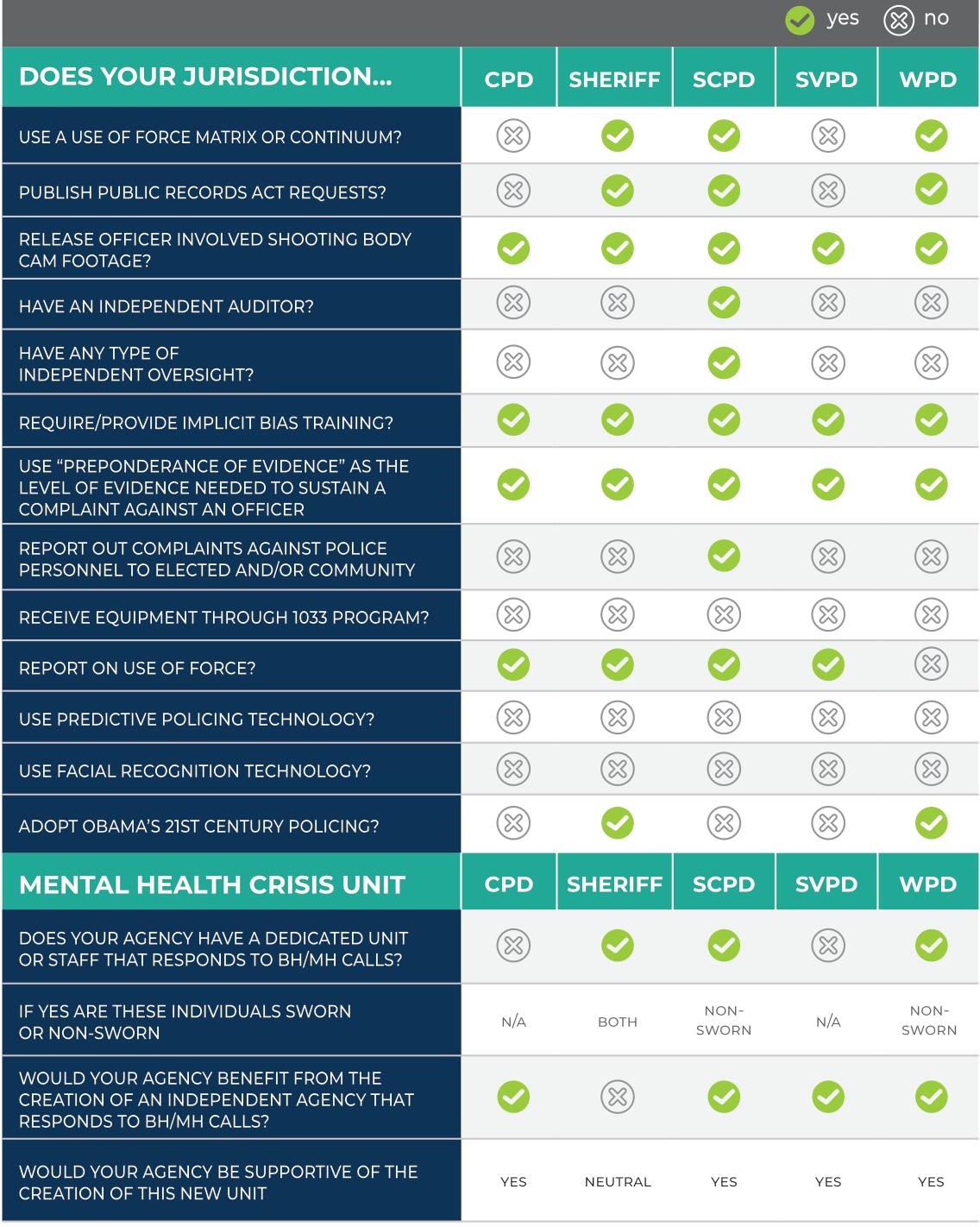
The Criminal Justice Council recently released a Santa Cruz County Regional Public Safety Agency Policy and Review Analysis. View the full report. (Criminal Justice Council/Applied Survey Research)
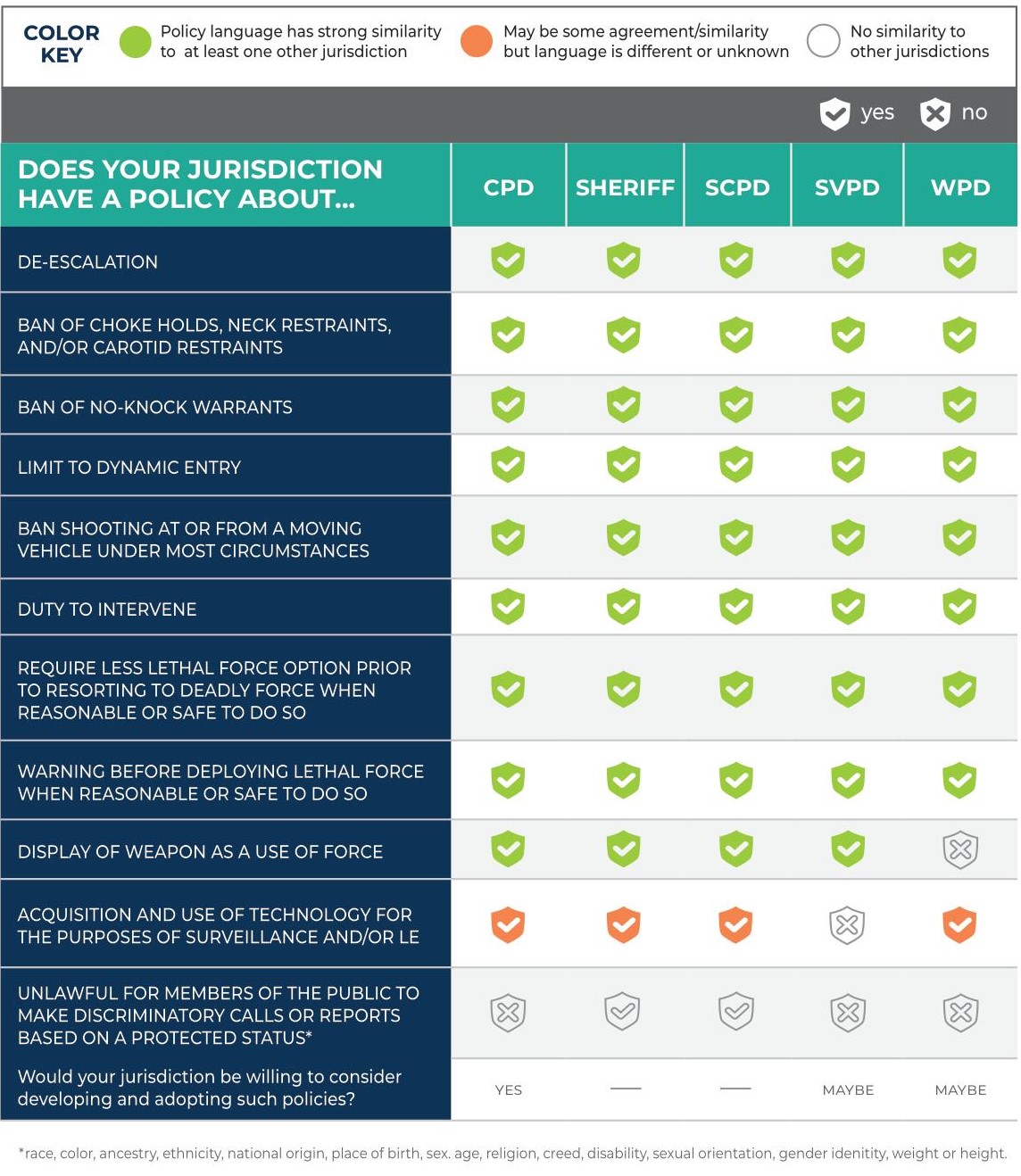
The Criminal Justice Council recently released a Santa Cruz County Regional Public Safety Agency Policy and Review Analysis. View the full report. (Criminal Justice Council/Applied Survey Research)
Friend, Scotts Valley Police Chief Steve Walpole and others said they were pleased with the transparency and alignment of the policies. “However, every individual’s experience with law enforcement can vary due to a lot of reasons,” Friend said.
Although the Criminal Justice Council approved the report Thursday, police chiefs in Watsonville, Capitola said they expect to present its findings to their city councils for discussion. It’s likely that Santa Cruz and Scotts Valley councils also will discuss the report. Cummings, the Santa Cruz City Council member, said part of the point of the report is for residents to better understand what is in police policy.
The Criminal Justice Council for more than 30 years has tried to prevent crime and gang activity by coordinating city and county elected leaders, law enforcement, the District Attorney’s Office, public defender and nonprofit and education leaders.
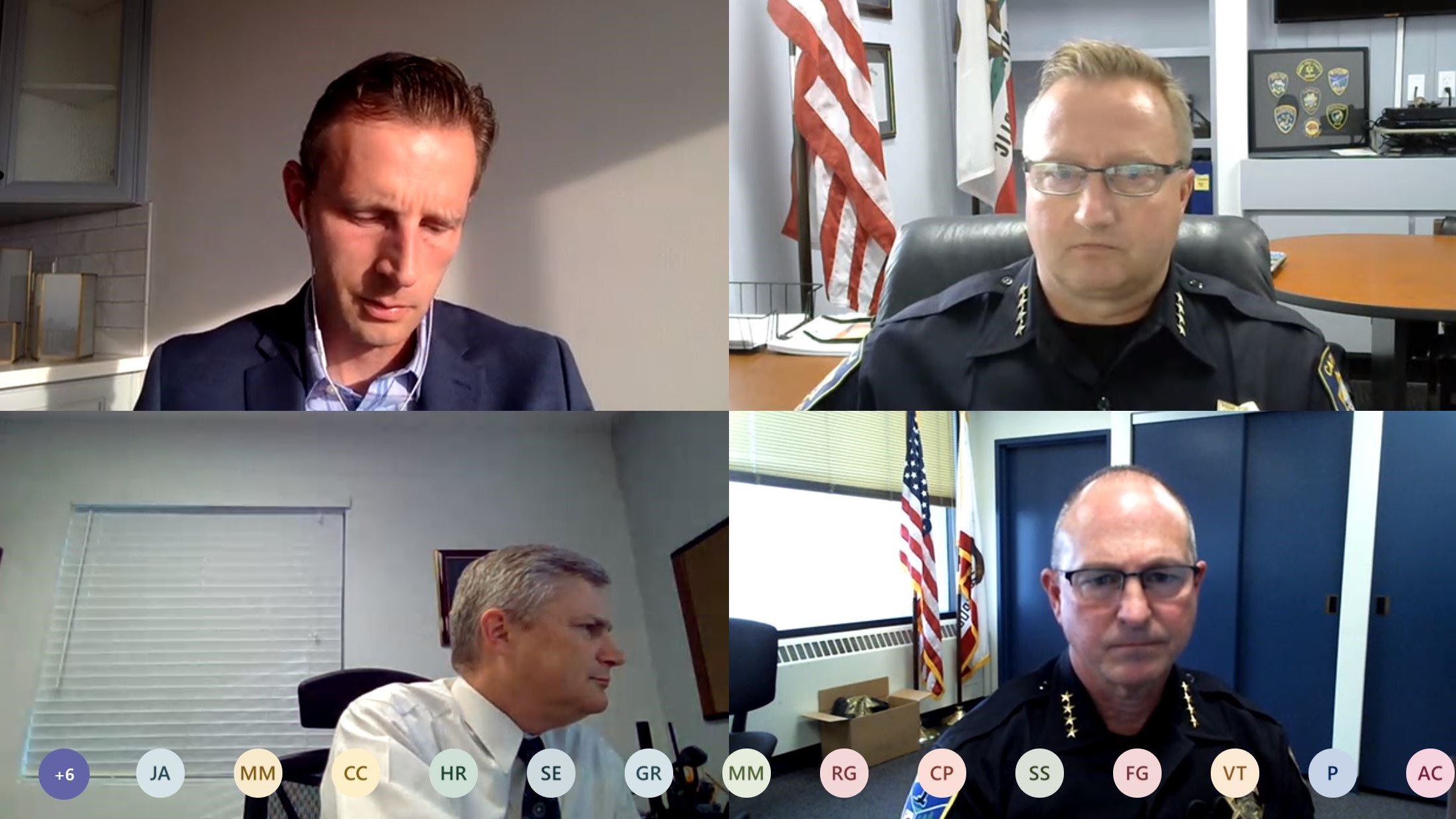
Clockwise from top left, Santa Cruz County Supervisor Zach Friend, Capitola Police Chief Andy Dally, interim Watsonville Police Chief Tom Sims and Scotts Valley Police Chief Steve Walpole. The chiefs and others attended an online meeting Thursday of the Santa Cruz County Criminal Justice Council. (Screenshot)
Stephen Baxter is a co-founder and editor of Santa Cruz Local. He covers Santa Cruz County government.





